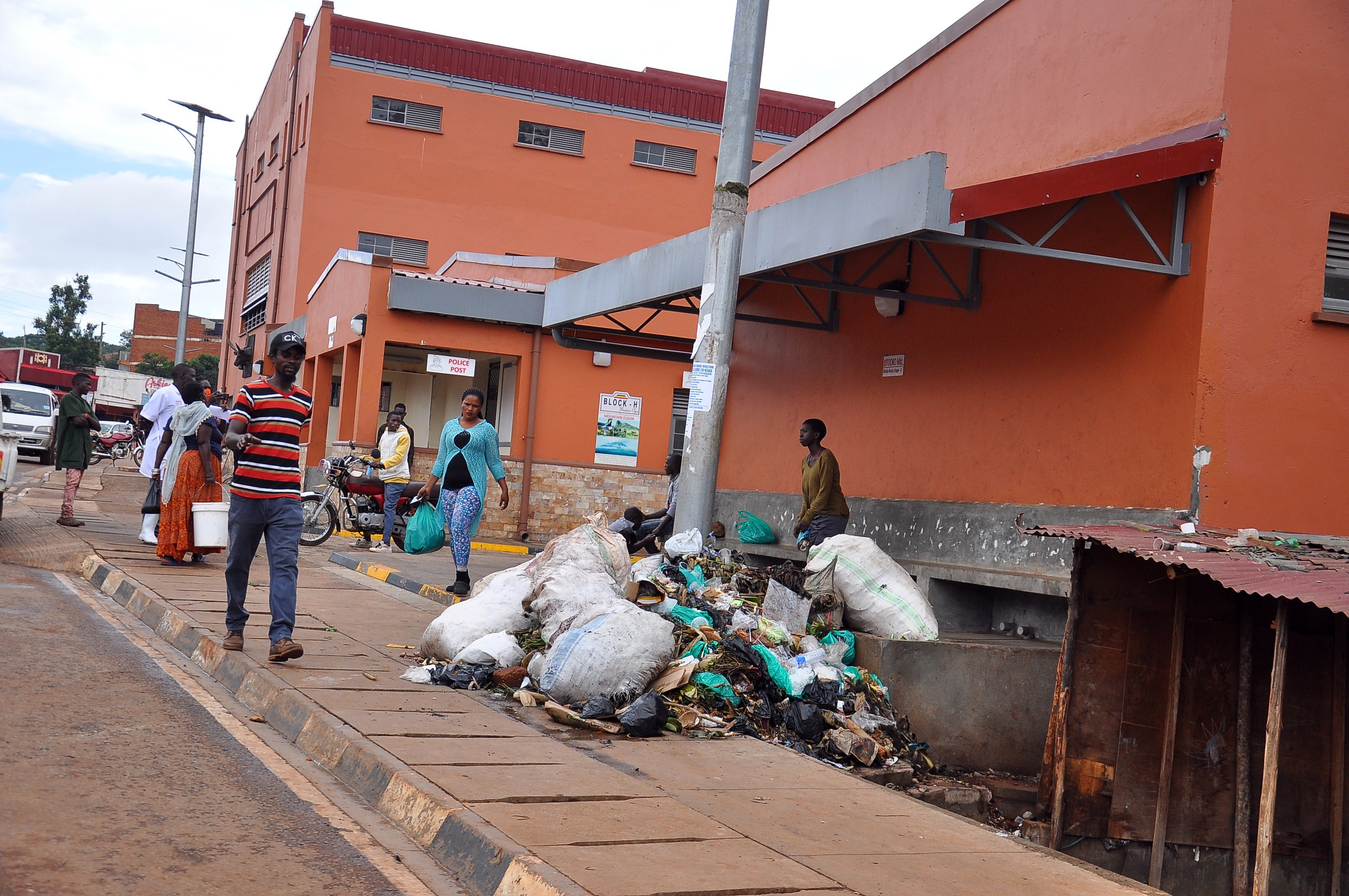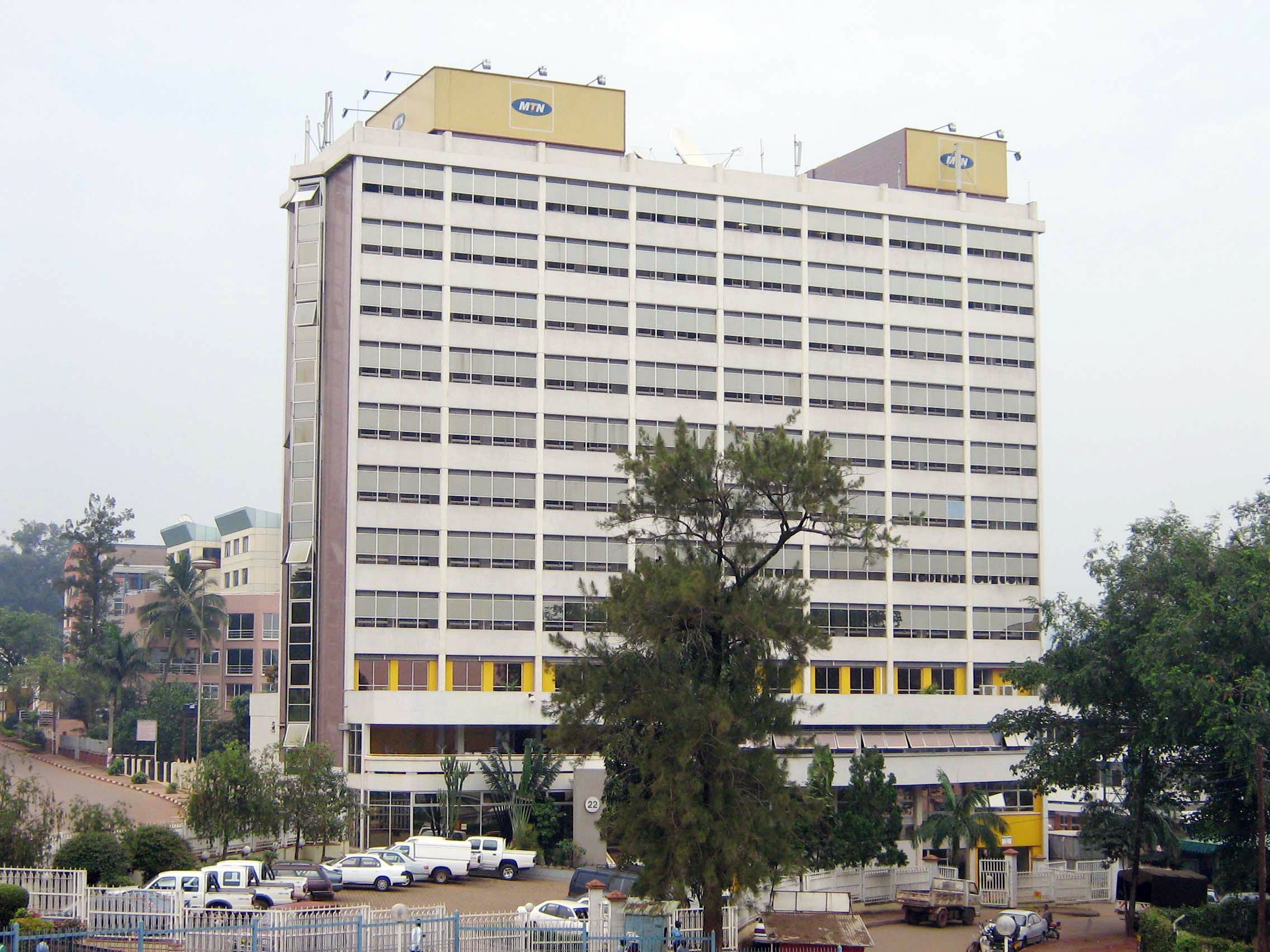Prime
Entebbe overwhelmed with waste, privatises collection

Residents walk past garbage dumped near the entry of the newly constructed Kitooro Market in Entebbe Municipality on Monday. PHOTO/ EVE MUGANGA
What you need to know:
Many major towns across the country are grappling with garbage. Some towns such as Masaka City and Mukono Municipality are also sourcing private firms to manage solid waste.
Overwhelmed with the task of keeping Entebbe Town clean, authorities are now seeking private investors with proven experience and technology to collect and manage solid waste in the area.
Authorities admit that managing solid waste in Uganda’s first city has proved difficult since they can only collect 50 percent of the 300 tonnes generated daily.
“I have been seeing a problem of garbage in Entebbe, once I see a problem; I find a solution to it, which we have done,” Mr Fabrice Rulinda, the newly sworn-in mayor of Entebbe Municipality, said in an interview on Monday.
In 2018, Entebbe Municipality dropped the use of garbage skips and all residents were asked to collect garbage in sacks and polythene bags at their homes or shops where municipal garbage disposal trucks would collect from.
But residents say the trucks take several days to turn up, leaving the town littered with piles of garbage. Some residents have also resorted to dumping garbage in the middle of the streets at night, while others throw it in the nearby Namiiro Swamp.
“The idea of bringing private garbage collectors on board is welcome. Today, some parts of the town are covered by a stench that poses a health threat,” Mr Peter Kabunga, a resident of Lugonjo Village in Entebbe, said.
Mr Kabunga said dumping solid waste in the swamp has interfered with the water flow, leading to flooding in the villages of Lugonjo, Kiwafu West and Lugonjo –Nakiwogo.
“Whenever it rains, uncollected garbage blocks some roads such as Kitooro, Lugonjo and Nakiwogo in Division B. Uncollected garbage also blocks access to the locals’ homes, shops and markets,” he added.
Entebbe Division B chairperson, Mr Richard Ssekyondo, admitted that they lack capacity to adequately manage solid waste in the area. He said they currently have only three garbage disposal trucks, two of which are too old and often break down.
“As Entebbe Division B, we have been spending Shs120 million every year on fuel to collect garbage. This money is obtained from the local revenue we collect. But with the current business environment, battered by two successive Covid-19-induced lockdowns, we may not raise much revenue, which will definitely affect service delivery,” he said.
At least 140 tonnes of garbage are generated daily in Division B, but only 80 tonnes are collected, according to Mr Ssekyondo.
He said they have already entered into partnership with one private company called Yo Waste, to manage garbage in residential areas and shops in the Division B.
“We shall remain with the responsibility of managing garbage only in markets such as Nakiwogo, Kitooro and Kigungu. Residential houses will be paying Shs5,000 a month for garbage collection, while shops will pay between Shs10, 000 and Shs20,000. The garbage will be collected four times a month,” Mr Ssekyondo said.
Ms Scolastica Najemba, the chairperson of Entebbe Division A, said it is a good idea to contract private garbage collectors, provided they have capacity to collect solid waste and turn it into reusable products.
“In this day and age, we don’t expect a private garbage collector who cannot add value to the garbage, it will be a waste of time and resources,” she said.





